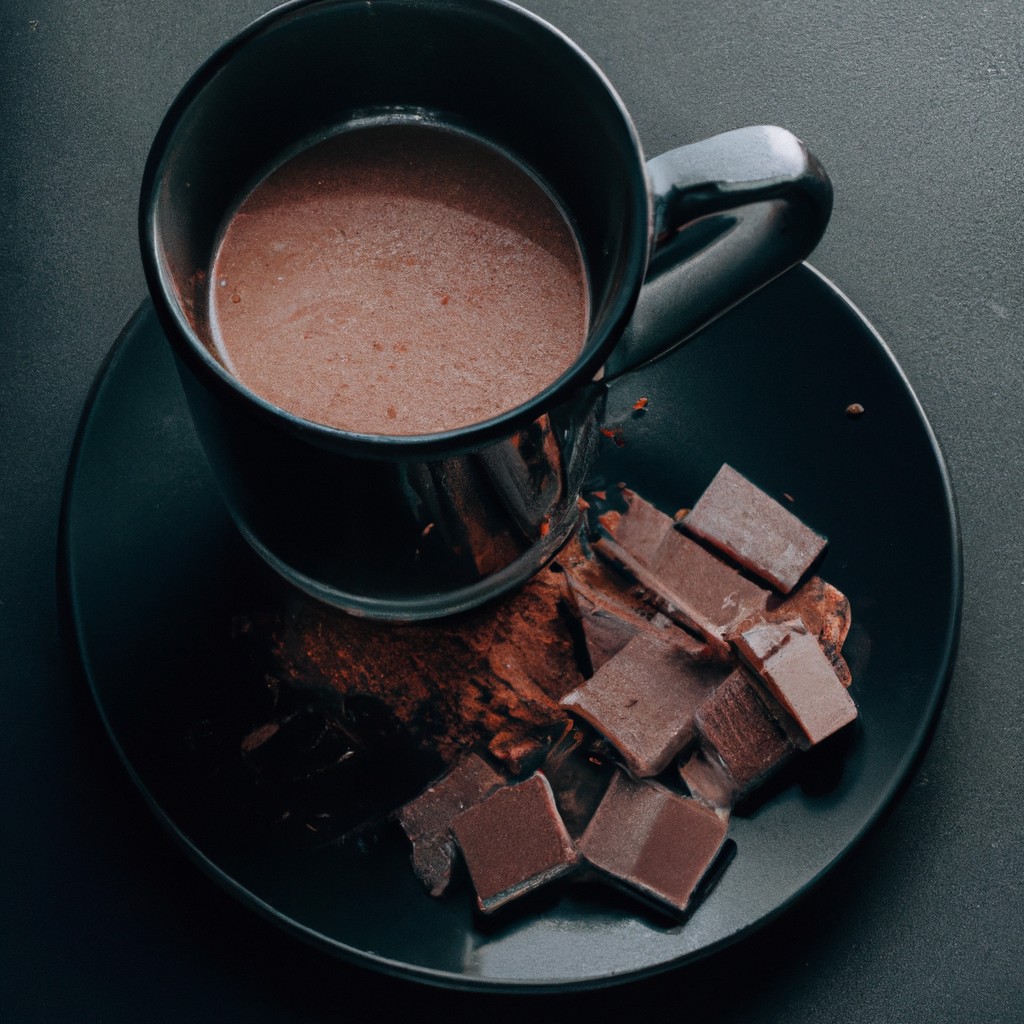In this article, you will learn factual, in-depth information about the presence of caffeine in chocolate, and how it affects your body.
Key takeaways:
- Dark chocolate has more caffeine than milk chocolate.
- White chocolate has negligible amounts of caffeine.
- Dark chocolate contains an average of 12 milligrams of caffeine per ounce.
- Milk chocolate contains around 9 milligrams of caffeine per 1.5 ounces.
- Chocolate’s caffeine content is lower compared to coffee and tea.
Inside
Caffeine Presence in Chocolate Explained

Chocolate naturally contains caffeine, a stimulant found in cacao beans, the primary ingredient in chocolate production.
The concentration of caffeine in chocolate is determined by the percentage of cacao beans it contains.
Dark chocolate, with a higher cacao content, holds more caffeine than milk chocolate.
White chocolate, however, contains negligible amounts since it’s made from cocoa butter, without the cocoa solids where caffeine is found.
For those sensitive to caffeine or looking to limit their intake, understanding the correlation between cacao content and caffeine levels in chocolate is essential when choosing the right type for their consumption.
Caffeine Amount By Chocolate Type
The caffeine content in chocolate varies depending on the type:
- Dark chocolate: Contains the highest levels of caffeine, with an average of 12 milligrams per ounce. A standard 1.5-ounce bar of dark chocolate can hold around 18 milligrams of caffeine.
- Milk chocolate: Has less caffeine than dark chocolate, generally around 9 milligrams per 1.5 ounces. This is due to the higher milk and sugar content, which dilutes the caffeine concentration.
- White chocolate: Lacks significant caffeine content as it is made from cocoa butter without the cocoa solids that contain caffeine. White chocolate typically contains only negligible amounts of caffeine.
- Baking chocolate: Often used in recipes, unsweetened baking chocolate holds approximately 23 milligrams of caffeine per ounce due to its concentrated form of cocoa.
- Cocoa powder: Used in baking or making hot chocolate, it has about 12 milligrams of caffeine per tablespoon.
Note that these numbers can vary by brand and recipe, so always check the label for the most accurate information.
Chocolate Caffeine Amount Vs. Other Products
To grasp chocolate’s caffeine content, comparison with other caffeinated products offers clear perspective. A standard 1-ounce serving of dark chocolate contains roughly 12-25 milligrams of caffeine, whereas the same amount of milk chocolate boasts a modest 5-10 milligrams.
In contrast, an 8-ounce cup of coffee typically holds 95-200 milligrams, significantly surpassing the levels found in chocolate. Tea varies widely, with green tea at about 15-30 milligrams and black tea at 40-70 milligrams per 8 ounces. Soft drinks, on the other hand, generally contain anywhere from 20-40 milligrams of caffeine in a 12-ounce can.
These comparisons indicate that while chocolate contains caffeine, the quantity is minor when measured against traditional caffeinated beverages. This insight is of particular relevance for those monitoring caffeine intake or considering chocolate as a lower-caffeine alternative.
What’s the Recommended Daily Amount of Caffeine?
Most health experts agree that a moderate intake of caffeine for healthy adults is up to 400 milligrams per day, equivalent to around four small cups of brewed coffee. Pregnant and breastfeeding women, children, and individuals sensitive to caffeine should consume less.
Balancing your daily intake, be it through chocolate, coffee, tea, or soft drinks, is essential for maintaining good health without experiencing side effects such as insomnia, nervousness, or an increased heart rate. Always consult with a healthcare provider to determine the appropriate caffeine intake for your individual health needs.
The Bottom Line On Chocolate’s Caffeine Content
Chocolate does indeed contain caffeine, though the amount varies with the type and darkness of the chocolate. Dark chocolate has more caffeine than milk chocolate, and white chocolate has only trace amounts of caffeine.
When enjoying chocolate, always consider this caffeine content, especially if you are sensitive to caffeine or consuming it close to bedtime.
To keep track of your caffeine intake, remember:
- For milk chocolate, an ounce typically contains less than 10 milligrams of caffeine.
- An ounce of dark chocolate can contain between 12 to 25 milligrams.
- White chocolate is not a significant source of caffeine.
By comparing this with the average 95 milligrams of caffeine found in an 8-ounce cup of coffee, chocolate offers a lower-caffeine alternative for a mild lift.
Moderation is key, so relish your chocolate treats while being aware of the caffeine you’re consuming throughout the day.
Related
- Does Hot Chocolate Have Caffeine? Find Out What’s in Your Cup
- Caffeine in Dark Chocolate: Health Effects and Content Levels
- Do Chocolate Covered Espresso Beans Have Caffeine: Your Guide to Their Energy Boosting Content
- How Many Cups Are in a Bag of Chocolate Chips: Accurate Measurement Guide
- Is Chocolate Milk Good for You? Understanding the Health Benefits and Myths